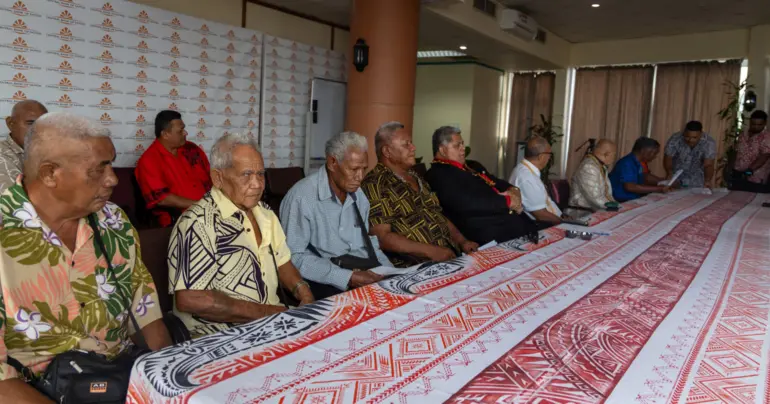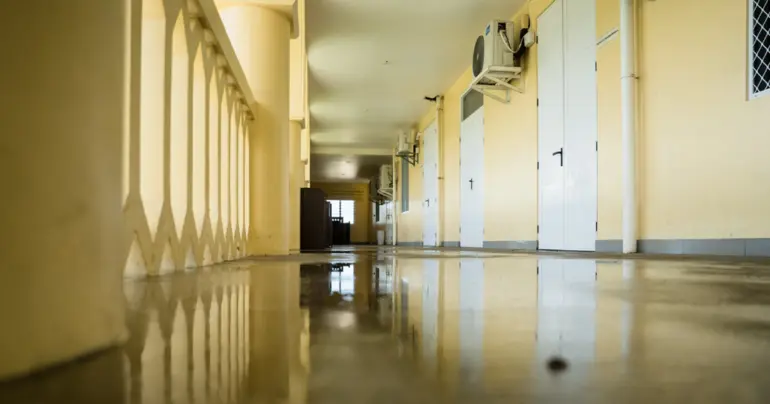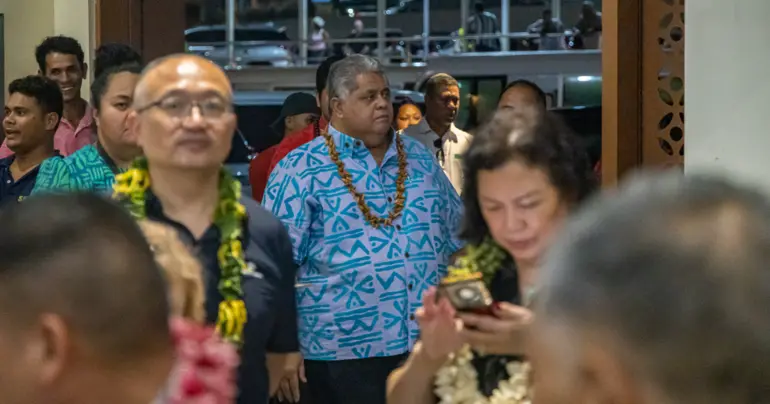Regardless of result, electoral landscape will forever change
 By The Editorial Board
•
08 April 2021, 12:30AM
By The Editorial Board
•
08 April 2021, 12:30AM
The air around Apia has been thick with suspense this week, even more so than one might expect during the days leading up to such a close-fought and high-stakes national election as we still see staged on Friday.
Perhaps stretching this sense of political anticipation for the first time this election is the introduction of pre-polling facilities for the first time, something that has changed the dynamic of speculation (or analysis?) in the lead-up to the campaign and the democratic race itself.
On the front page of today's Samoa Observer, despite the pool of pre-polling voters (about 8500) being a fraction, or about 6.5 per cent, of the total voting pool (128,000) we note these early results could be more influential than they seem ("Does early voting matter?").
There had been some talk that pre-polling booths were lying disused. But official figures note another 1,428 people availed themselves of the opportunity to vote early on Wednesday, leaving only about 30 per cent of the total for the final day.
In addition to seemingly spacing out demand for the new pre-polling service, for providing facilities for voters who might feel vulnerable or unable to cast their ballots among a throng on Friday we duly praise the Office of the Electoral Commissioner.
His highest duty to the public of Samoa is to ensure that everyone has the ability to cast their vote and that is a noble initiative into which much thought has clearly gone before this week’s pre-polling opened.
The wisdom of the elderly is also inestimable and it is vital for us, as a democracy and society, to do everything so that it may be heard.
But one unintended effect of the pre-polling stations and the regular publication of results has been to extend for much longer than is normal that sport so beloved of political animals: prognostication.
Much is no doubt being read at two major party headquarters about the most minor changes in vote tallies overnight.
In some smaller villages, there are rumours that the despicable practice of seeking to establish which family has been enabled by the publication of these results. If true, reports of such attempted democratic persecution should be acted upon.
Veterans and hard-heads from the Human Rights Protection Party (H.R.P.P.) and the Fa'atuatua i le Atua Samoa ua Tasi (F.A.S.T.) may see information from the rolling counts of seats with vote counts fewer than one hundred.
We think it unlikely that there is statistical merit in these figures.
(We have even received feedback that, for this reason, we should refrain from publishing these figures altogether. That is wrong-headed thinking. The record of a significant election is being chronicled in these pages and committing everything said or published by those conducting it is part of our duty as a newspaper.)
But how meaningful is the battle of inches currently being fought by the major parties over pre-polling?
That the H.R.P.P. lead in 28 constituencies to F.A.S.T.'s 18 is gives us only the tiniest of insight when such a small and limited demographic has had their say.
But there is another possibility at play - and one that should not be discounted: that these small early leads could be influencing the broader electorate, something the estimable political historian Leasiolagi Dr. Malama Meleisea tells the Samoa Observer today.
The sample we have to hand so far of pre-poll voters are overwhelmingly votes cast by elderly voters.
In almost every other democracy on earth, pre-poll voters show a clear political bias towards conservatism, namely not upsetting the status quo.
But will that be the case in Samoa, where elders are opinion leaders as they are not in western nations? Will the uniquely influential role of the elderly in Samoa turn the old rule of political science of early voters being out of step with the majority on its head come 9 April?
We should be careful to make assumptions.
But it is clear that, in more ways than one, this is shaping up to be a generationally significant election.
We also have an unprecedented injection of new voters among Samoan electors, courtesy of new laws requiring compulsory registration of voters.
Many of the 16,630 newly registered voters for this election will not be those who have just reached the age requirement for casting their vote in the election, but who have registered in a bid to avoid $2000 penalties.
Taken together they provide a significant bloc of voters: more than 10 per cent of the total.
What might be the parties thinking about how to appeal to these new voters, many of whom we might presume would be less politically engaged than average but are now forced to cast their votes. For whom will they be more likely to cast their ballots? The Government or opposition?
These are questions that will be raked over by political scientists for years to come before reliable information can be gleaned from these new features of our democracy.
And these figures alone - the mechanical analysis of political science - says nothing about the many unmeasurable factors that win voters over such as charisma, likeability and trustworthiness of party leaders.
One thing is clear. We are indeed breathing a new political atmosphere this week. But we are also looking at a Samoan electoral landscape that will be forever changed.
 By The Editorial Board
•
08 April 2021, 12:30AM
By The Editorial Board
•
08 April 2021, 12:30AM










